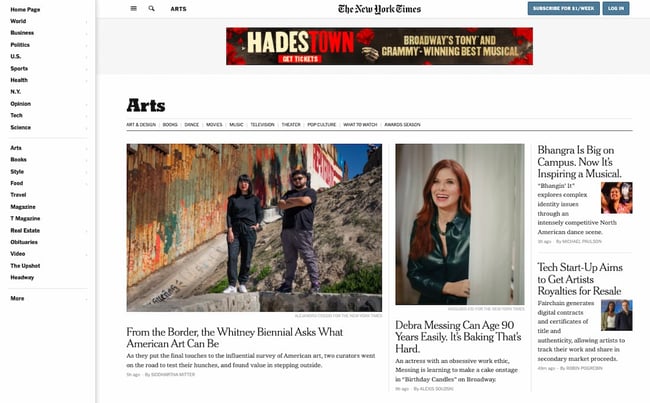Indicators on News Websites You Should Know
Indicators on News Websites You Should Know
Blog Article
Some Known Details About News Websites
Table of ContentsThe 6-Second Trick For News WebsitesWhat Does News Websites Do?News Websites for BeginnersThe Ultimate Guide To News WebsitesSee This Report on News Websites
It was down in the UK and Brazil yet up a few other countries, such as Greece, Bulgaria, and Poland (News Websites). This year, for the very first time, we asked regarding the different manner ins which individuals prevent the news and found that around half of avoiders (53%) were attempting to do so in a broad-brush or routine method for example, by transforming off the radio when the information began, or by scrolling past the news in social media sitesYou said that you attempt to actively avoid information.

I'm probably selecting to review more light-hearted stories than I utilized to right now. M, 51, UK Switching my back on information is the only way I feel I can cope often. I need to purposely make the initiative to avert for my own mental health and wellness.
What Does News Websites Mean?
Careful avoidance of Ukraine news was greatest in most of the countries closest to the conflict, reinforcing searchings for from our added survey last year, not long after the battle had actually begun. Our data might not recommend a lack of rate of interest in Ukraine from close-by countries but instead a wish to handle time or secure mental health from the very actual horrors of war.
Contrasting Finland with a politically polarised country such as the United States (see following chart) that is less influenced by the war, we find a really different pattern of topic evasion. In the United States, we find that customers are more probable to stay clear of topics such as national politics and social justice, where discussions over problems such as gender, sexuality, and race have actually come to be very politicised.
American politics are rather poisonous nowadays. I discover often that I have to separate from stories that simply make me angry. F, 61, USA For some people, bitter and dissentious political arguments are a factor to shut off news completely, however for some political upholders, avoidance is commonly about shutting out perspectives you don't wish to listen to.

The 30-Second Trick For News Websites
Some are seeking to make information extra obtainable for hard-to-reach teams, expanding the news schedule, commissioning even more motivating or favorable news, or accepting constructive or solutions journalism that offer individuals a sense of hope or personal firm. In our survey this year, we asked respondents concerning their passion in these different approaches.
This explains why tales like Ukraine or national politics execute well with news regulars yet can at the exact same time turn much less interested individuals away (News Websites). Selective avoiders are much less thinking about all sorts of information than non-avoiders however in loved one terms they do seem to be extra curious about positive or solutions-based information

Get This Report about News Websites
2023). This may hold true in the minute, however over time it appears to be leaving many individuals empty and much less satisfied, which might be threatening our connection with and rely on the information. Across markets, total count on in news (40%) and count on the sources individuals use themselves (46%) are down by a further dig this 2 portion points this year.
Via the rear-view mirror, the COVID-19 count on bump is plainly visible in the adhering to chart, though the direction of traveling afterwards has actually been mixed. Sometimes (e.g. Finland), the trust boost has been preserved, while in others the upturn looks more like a spot in a story of ongoing long-lasting decrease.
A few of the highest reported degrees of media objection are found in nations with greatest levels of distrust, such as Greece, the Philippines, the USA, France, and the United Kingdom. The most affordable degrees of media criticism are frequently in those with greater levels of depend on, such as Finland, Norway, Denmark, and Japan.
Excitement About News Websites
This year we asked participants concerning their choices for text, audio and video clip when eating news online. On average, we locate that the bulk still choose to read the information (57%), instead of watch (30%) or listen to it (13%), but more youthful people (under-35s) are most likely to pay attention (17%) than older groups.
Behind the standards we find significant and shocking country differences. In markets with a solid reading tradition, such as Finland and the United Kingdom, around eight in 10 still article choose to review on-line information, but in India and Thailand, around 4 in ten (40%) claim they favor to see information online, and in the Philippines that proportion is over fifty percent (52%).
Report this page